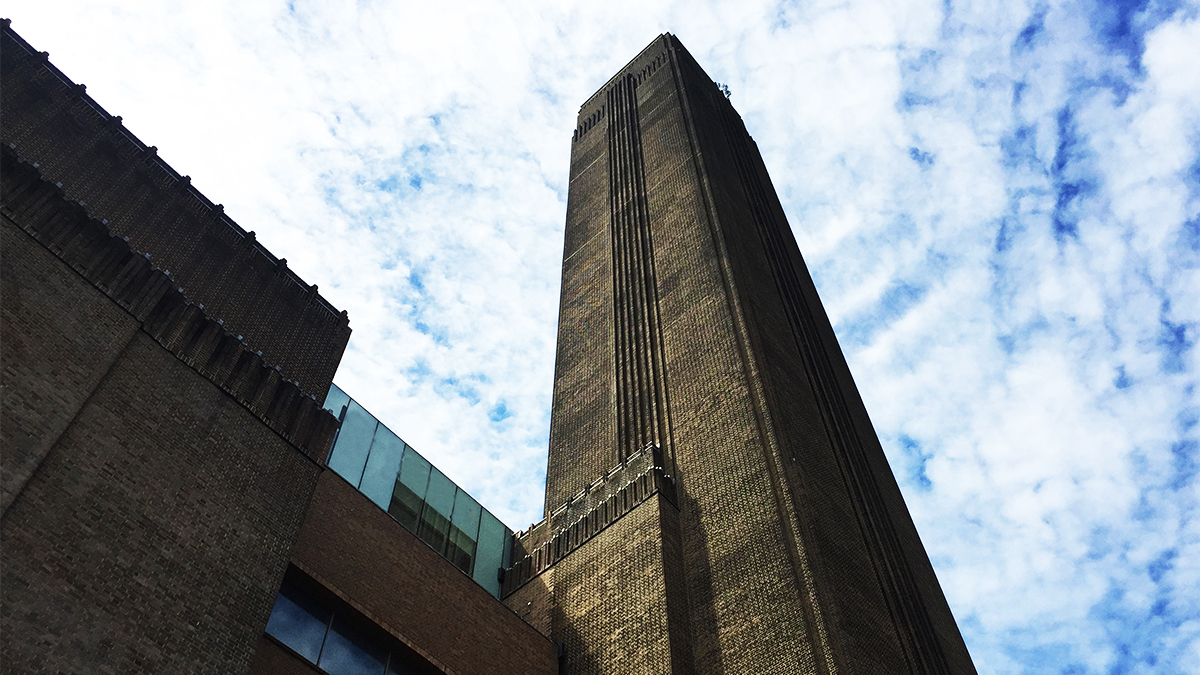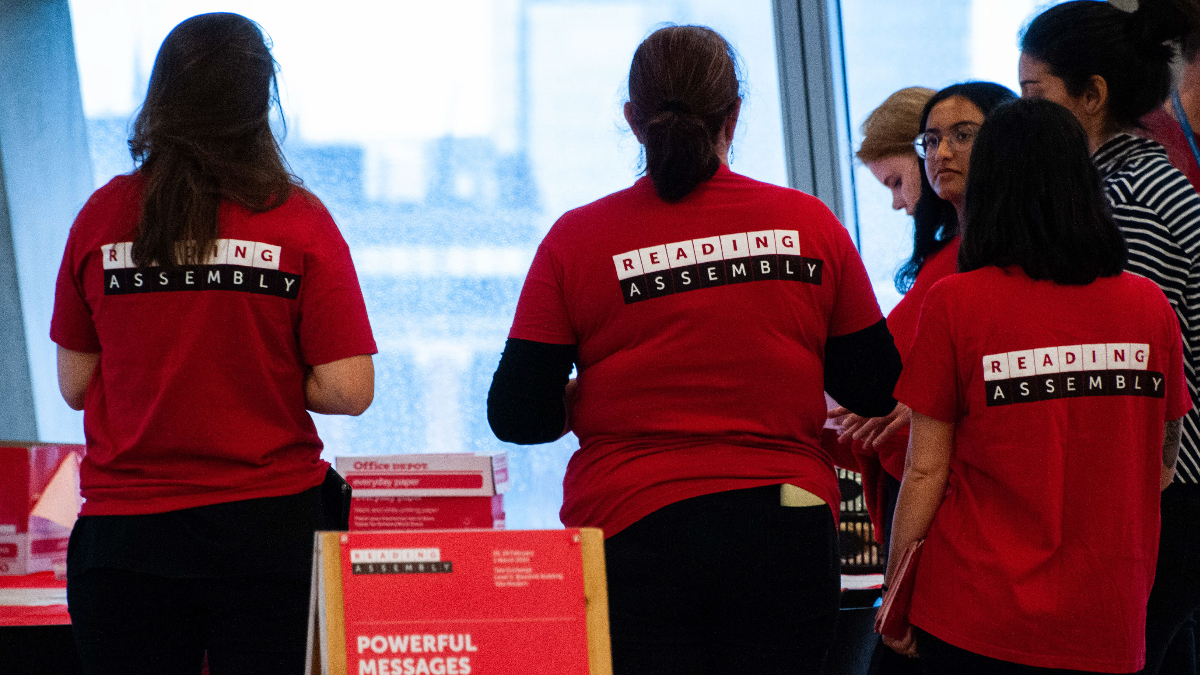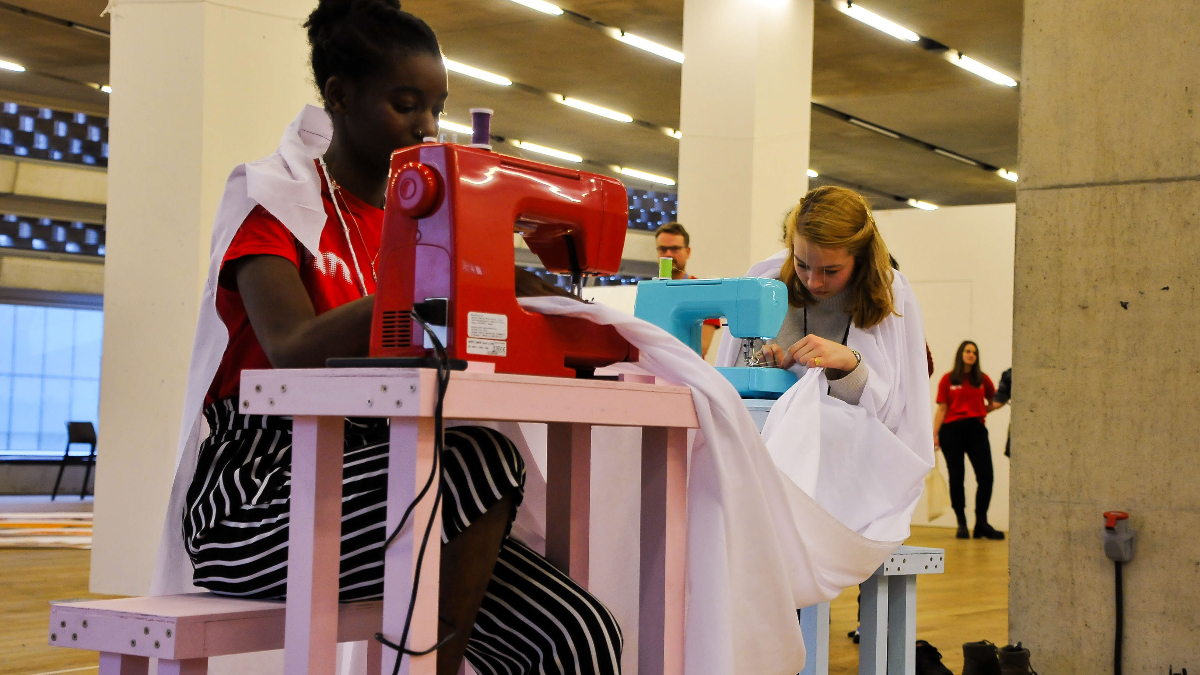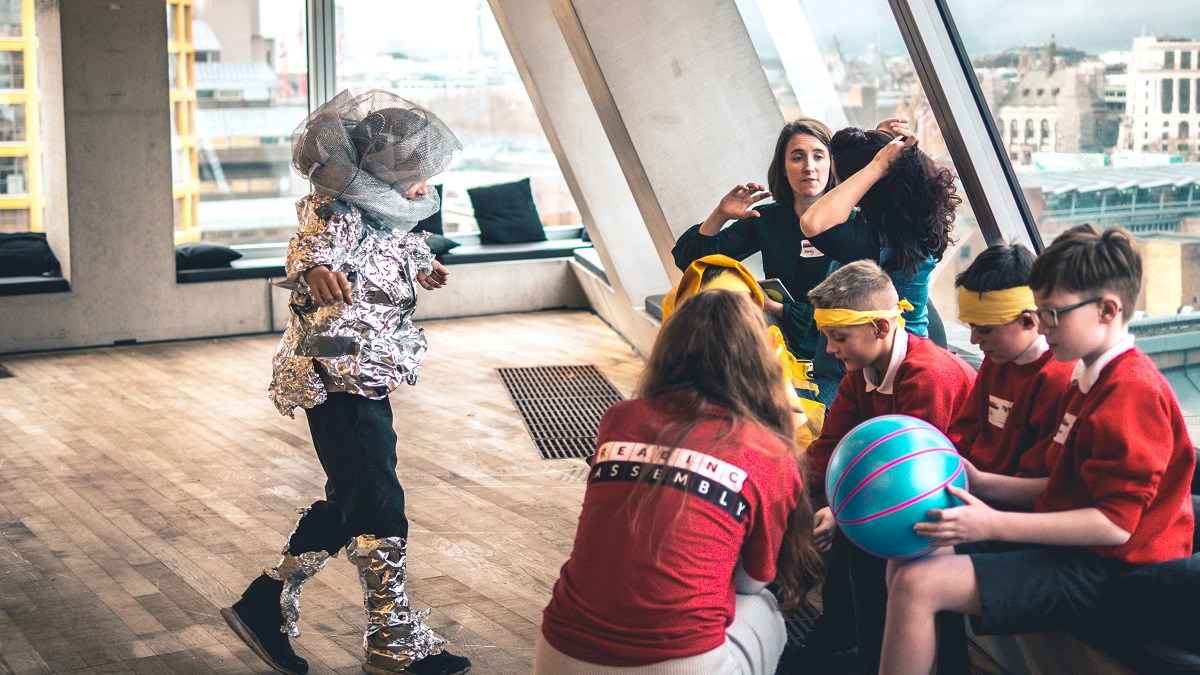
Every year, students and staff from the School of Arts & Communication Design (SACD) take over Tate Exchange at Tate Modern to deliver a week of free workshops and activities for the public.
In recent years, as part of the Tate Exchange programme, SACD staged Reading Assembly on the fifth floor of the Blavatnik Building, in conjunction with a range of local and international partners.




